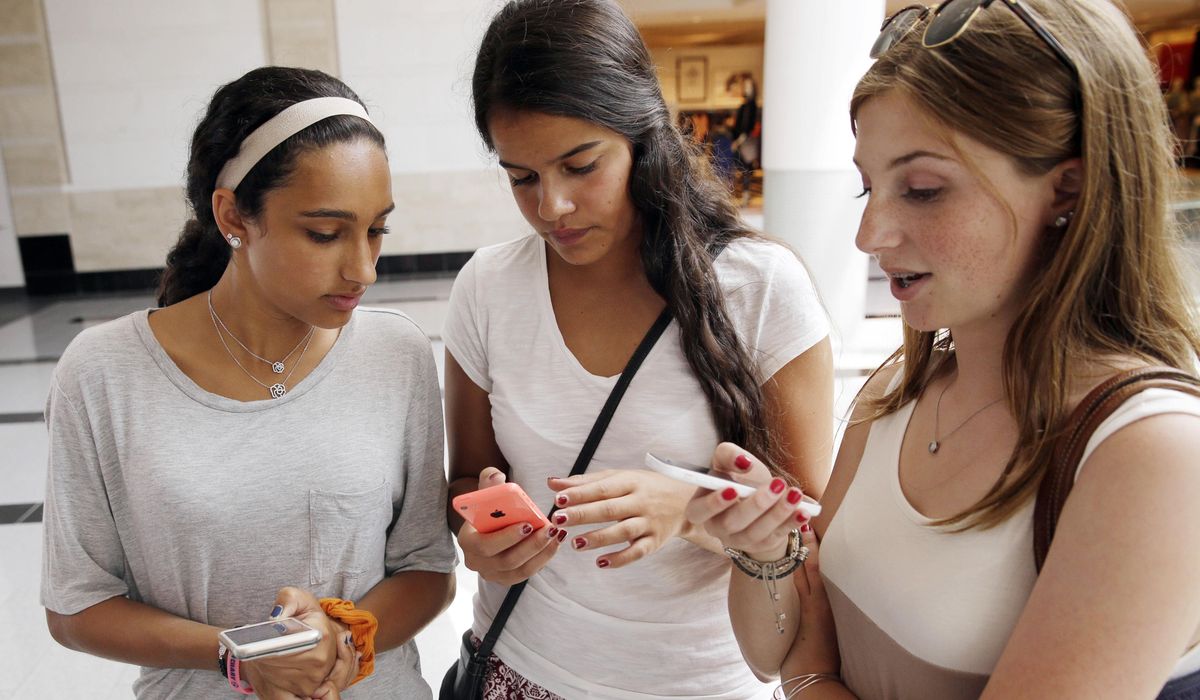


If you’ve heard a kid say something was “so Ohio” recently, just know that wasn’t a compliment.
TikTok has given Generation Alpha the platform to craft a new language, and it can be tough to tell what they’re talking about.
For instance, if a kid remarks that something “ate,” they’re saying that something was done exceptionally well or was deserving of praise: “Did you see Florence Pugh’s latest movie? She ate.”
Other slang includes niche references like “Skibidi” (so-named for a surrealist video series featuring human-headed toilets and men with cameras for heads, with little meaning outside its cultural context). Don’t worry — the word is so devoid of meaning that it requires context to understand what the speaker means.
A “Fanum tax” (the act of stealing someone’s food without permission) is never serious: “Bro had to pay the Fanum tax, so I snatched his chicken wing when he was talking.” Several sources contend it is a reference to online comedy creator Fanum, a member of Youtuber Kai Cenat’s “influencer crew.”
“Gyatt” or “gyat” (used to express admiration or surprise, often in reference to someone’s physical appearance) highlights slang’s playful and bold tone: “Gyatt, did you see her back end? She’s thick.”
Meanwhile, calling someone “the GOAT” (an acronym for “greatest of all time”) celebrates exceptional talent or achievement, such as “Kendrick Lamar is the GOAT rapper.”
The phrase “stand on business” means to take care of responsibilities or follow through on commitments: “You thought I wouldn’t come through on that? I stand on business.”
Acting with integrity gets more terms, too. “Cap” (to lie or boast) contrasts with “no cap” (truthfulness or honesty).
When it comes to looks, the kids are becoming more specific by the day: “Mogging” means being significantly more attractive than someone else, making them appear less attractive by comparison, and “looksmaxxing” means optimizing one’s physical appearance through skincare, exercise, and other techniques. “Mewing,” a popular variation of looksmaxxing, involves holding the tongue on the roof of the mouth to improve the jawline.
“Rizz” (a shortening of “charisma”) describes someone’s ability to attract romantic partners, while a “rizzler” (a person particularly skilled at flirting) is often admired: “He was rizzing up Kaia at her locker on break today.”
If someone gains “aura points” (a playful measure of coolness inspired by TikTok trends), it reflects their style or charisma. For example, “Did you see her new jeans? She just went up in aura points.” Similarly, “drip” (stylish or fashionable clothing) refers to a polished, trendy appearance. Someone “dripped out” (dressed impeccably) might be at their most confident at a party, as they may be the best dressed.
But if someone is so “Ohio,” they’re certainly not the star of the social scene. The word, in this context, has little to do with the Buckeye State: “Did you see her cringe hat at school today? She’s so Ohio.” It means that something is weird or lame.
Slang and the evolution of language
These terms may seem incomprehensible to older people, but linguistic experts say that slang is as ancient as language itself and should never prompt worry.
Jessi Grieser, an assistant professor of rhetoric and linguistics at the University of Tennessee in Knoxville, urges parents to calm down.
“We’ve got 3,000 years of people saying, ‘Our kids don’t sound the way we want them to sound,’” Ms. Grieser told The Washington Times.
Ms. Grieser explains that slang helps kids develop their own identities during critical developmental years. “Language is a huge part of how they create an identity separate from their parents,” she said, adding that every generation has done the same thing — albeit with different mediums.
What sets today’s slang apart is the speed at which it spreads, thanks to social media platforms like TikTok.
“In the past, you might pick up a cool word from a cousin or a friend of a friend,” Ms. Grieser said. “Now, kids are influenced by people from all over the world. A 12-year-old can become famous in a way that wasn’t possible before, and their language can go viral.”
Nicole Holliday, an assistant professor of linguistics at Penn State, said the role TikTok plays in creating specialized communities of practice.
“Because of the way the algorithm works, I can be hyperspecialized,” Ms. Holliday said. “There’s linguist TikTok, which you would probably never come across, and that forms what linguists call a community of practice.”
This hyperspecialization contributes to the rapid evolution of slang, which young people use to signal their social identities and connect with their peers. Ms. Grieser notes that part of growing up is learning when and where it’s appropriate to use such language, a process often described as code-switching.
“Language is a way for young people to assert their independence,” she said. “It’s also a way for them to connect with their peers. Instead of dismissing it, try to engage with it. Ask your kids what a word means and why they use it — you might be surprised by how much it reveals about their world.”
Ultimately, slang reflects the creativity, humor and priorities of the generation that creates it. As Ms. Grieser puts it: “It’s their turn to shape the future of language. And while it might feel incomprehensible to us at times, that’s part of the beauty of it.”
In other words, the kids “ate.”
• Emma Ayers can be reached at eayers@washingtontimes.com.
